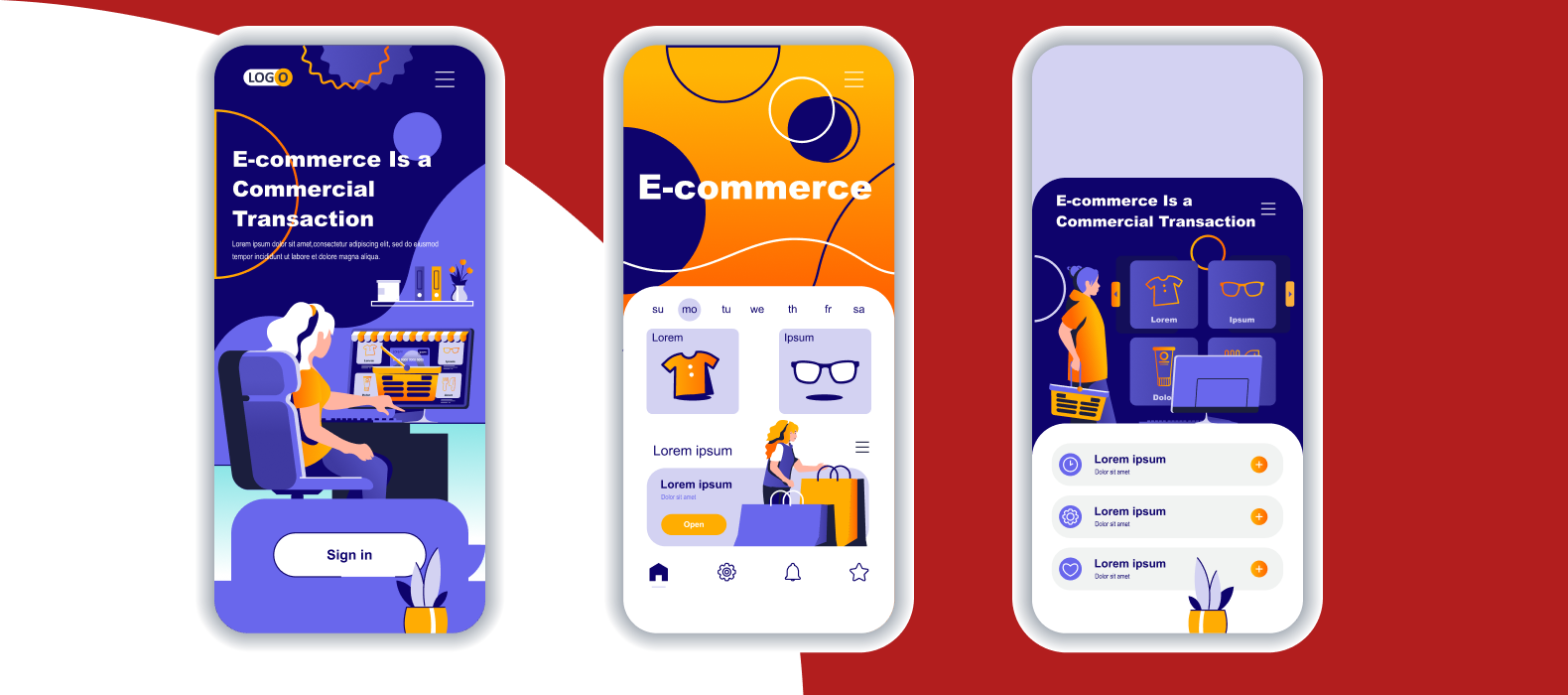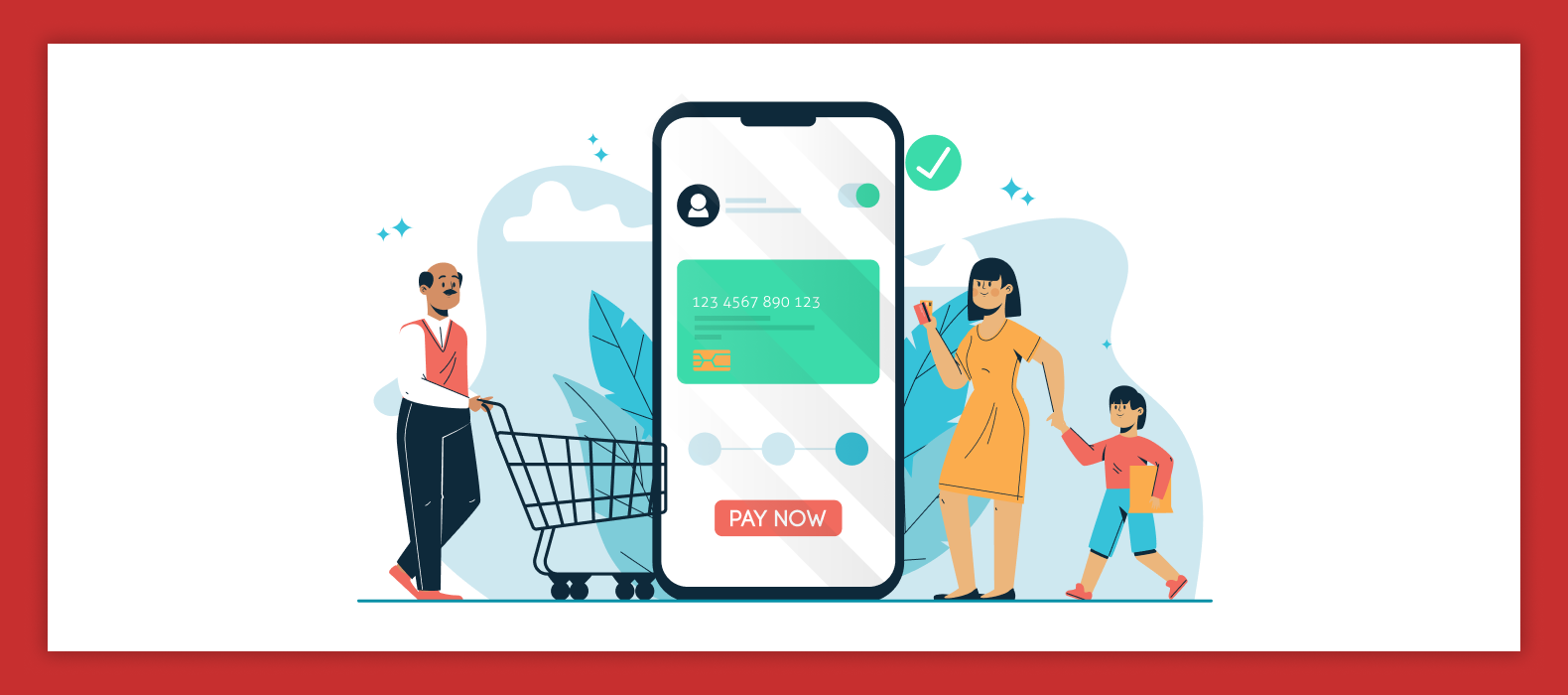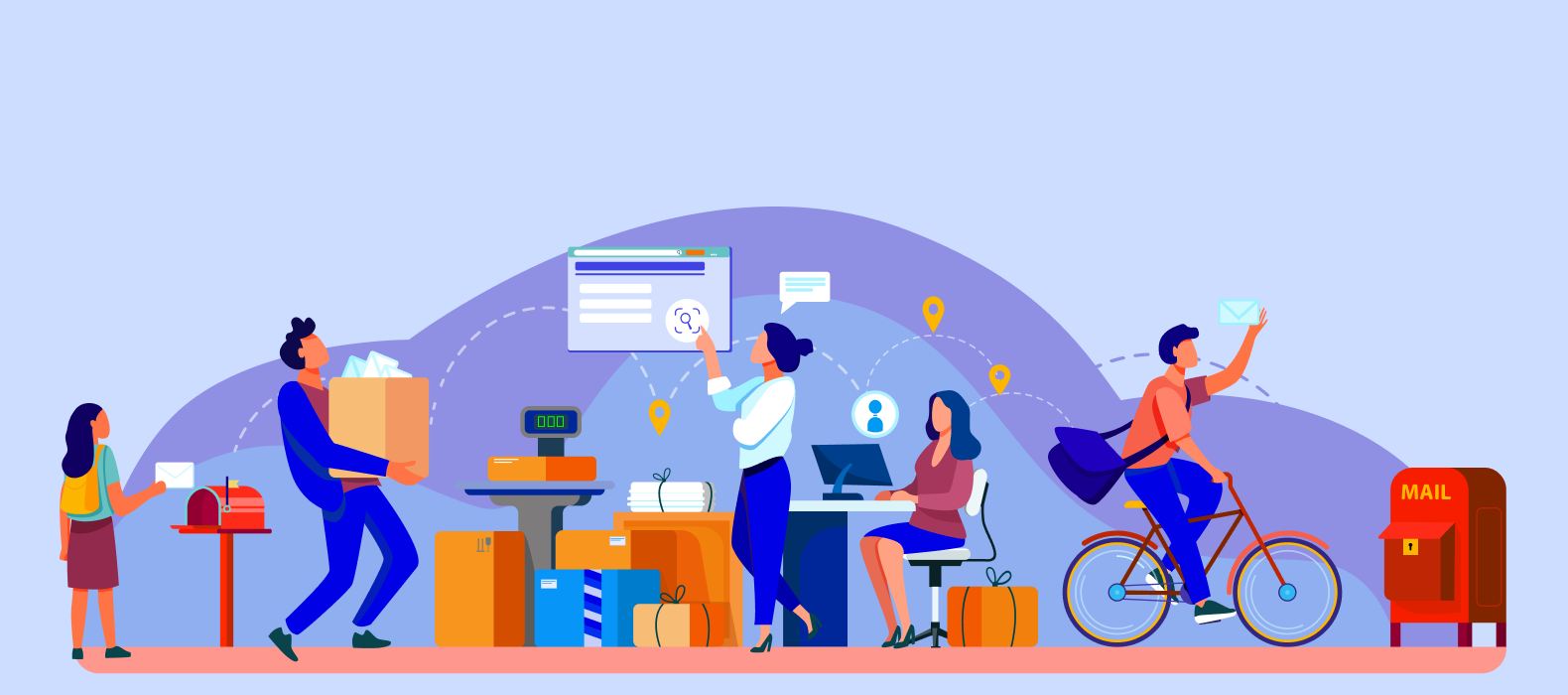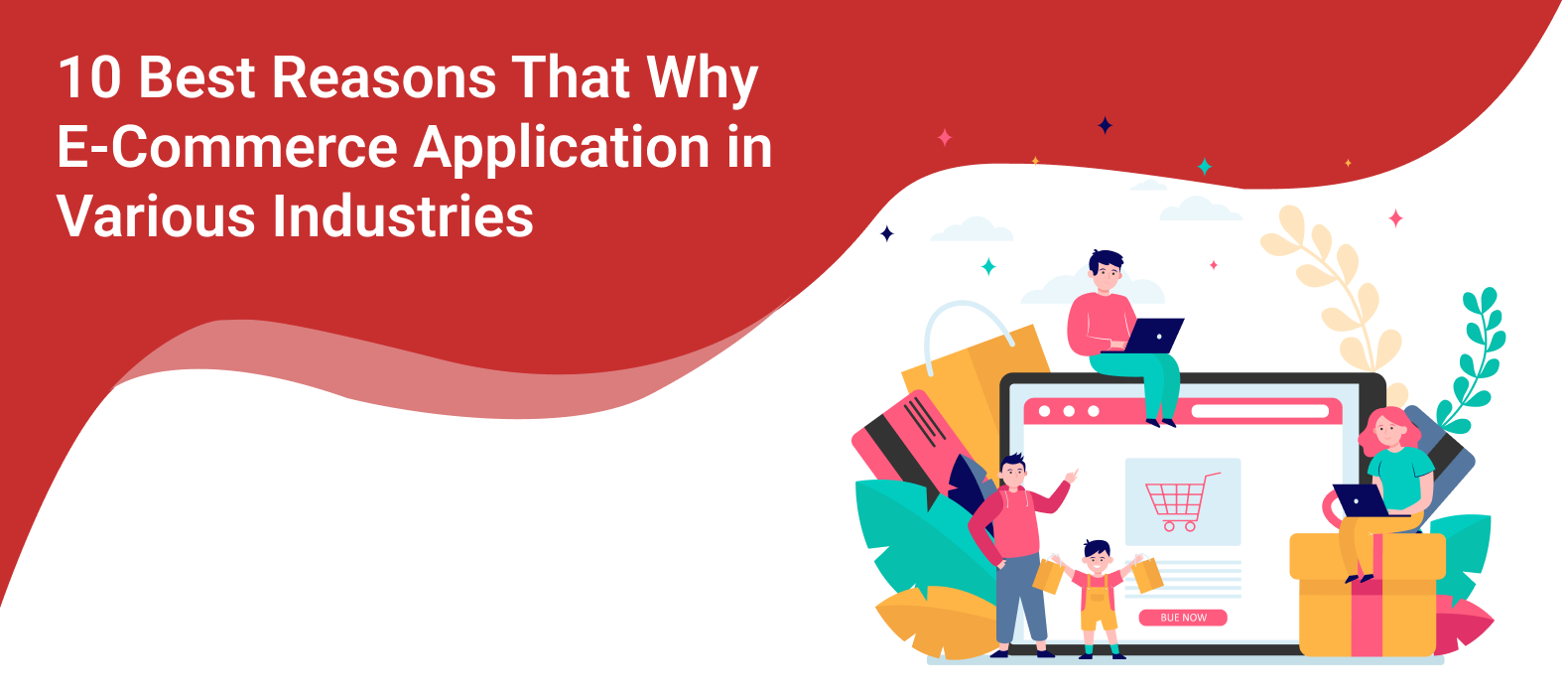Today, searching for a brand or product online and reading reviews are nearly standards. When it comes to e-commerce businesses, the possibilities are endless. More people than ever are now making purchases online. And this assertion is accurate for all businesses worldwide. You lose a lot of potentials if your online business does not have a mobile e-commerce application. You may reach customers from any location and at any time with any device due to the power of the Internet. However, the kind of gadget you pick to reach your customers could be bad for business.
There is no denying that smartphones have integrated heavily into our daily lives. According to a recent study, Over 90% of American adults own a mobile phone, and 81% use a smartphone.
Here is a detailed list outlining the most important reasons for e-commerce if you own a small to medium business and are still debating whether to invest in digital transformation.
What are e-Commerce Applications?

E-commerce applications is a slightly misleading term since it may be interpreted in one of two ways: either it refers to using e-commerce as a marketing tool for retail and wholesale, auctioning, e-banking, booking, and so on.
The second image one has of a software program like those seen on sites like Groupon, Amazon, eBay, etc. It could be an online or mobile application (now popularly known as m-commerce). Applications for mobile e-commerce are only an expansion of e-commerce. Every successful business app, whether it’s an Uber-like taxi app or a Beehive-like food delivery service, is powered by innovative mobile app ideas.
Reasons Why e-Commerce Applications in Various Industries.

Global e-commerce has been growing every year since its inception. Because internet purchasing is easier and more convenient than a real store, more people choose to do it. Examples of how ecommerce is changing and overturning the sector include Amazon and Flipkart. Start selling online by considering the main reasons for e-Commerce application listed below.
1. Increased revenue:
The 24*7/365 availability of items and an unlimited consumer base produce more sales. You instantly sell more and can modify your inventory to meet your client’s needs when you aren’t constrained by the local market or the size of your physical store. By adapting prices to the worldwide market, you can sell your products or offer your services to customers abroad. You can save money and grow your business more quickly by spending less of your budget on running a store and producing more money concurrently.
2. Speed and Flexibility:
In a matter of days, anyone or any company may create an e-Commerce application. Contrarily, a physical store needs a location, a commercial lease, and enough preparation time before starting. Displays and product lines can be altered instantaneously on an e-commerce platform, but in a real store, this calls for detailed planning, enough time, and enough staff. E-commerce sites perform far better than physical stores in terms of speed and flexibility, which is thought to be a major aspect of e-commerce. The seller can oversee all operations from the comfort of his home without renting office space.
3. Improved product and service availability:
Retailers can connect with their customers and promote their enterprises better when their goods and services are featured online. Due to the availability of online listings and price comparison on e-commerce platforms, your goods and services are continually visible. Additionally, you can assist people who turned to the Internet to source goods since they couldn’t find them locally. Online businesses allow you countless options to present your products appealingly and stand out from the competition because websites are visual mediums.
4. Customer Data Insights:
The simplicity with which consumer data can be gathered, analyzed, and used to take appropriate action is another advantage of Internet selling that you may not have thought about. You must control the consumer data if you want to have a laser-like focus on the customer experience. You can gather first-hand data through online selling by observing customer experiences. You’ll gain from a never-ending feedback loop of useful insights that will enable you to redefine the client experience continually.
Customer preferences are important, and an online business may track and assess how frequently a customer purchases or browses other items on his portal. In stores with physical locations, it is not possible. Customers’ behaviors can be directly and indirectly tracked by sellers, who can then modify their items to fit each customer’s specific needs.
5. Automation:
e-Commerce application provide complete automation, including financial systems, inventory, shipping, and customer support. That indicates that everything is in one location and can be easily managed by one person. Chatbots can answer most questions, and artificial intelligence adds a personal touch to this conversation. These straightforward fixes allow you more time to expand your company while keeping your clients happy—without hiring extra staff.
7. Low costs:
Launching an e-Commerce application is far less expensive than creating a physical store, which is a big benefit of e-commerce. You are not required to outfit your business, pay rent, or hire several employees. Campaigns for marketing and advertising are very reasonably priced. The internet gateway is also mechanized and computerized, saving much money. The lack of a middleman, which results in significant cost savings, is one of the main advantages of online commerce. Since the platform creates a direct relationship between customers and suppliers, it can create an effective supply chain.
8. Reduces operational expenses:
The most cost-effective strategy to expand your retail business is through e-commerce. It is incredibly cost-effective and does not require significant upfront money. Early sales revenues cover the majority of the investment.
When compared to purchasing or renting actual business space, purchasing a domain, hosting, or paying for web design and reliable e-commerce services is less expensive in the long run. Several e-commerce platforms offer drop-shipping services to vendors, which reduces storage and delivery costs. You don’t need to invest in additional software because chatbots can help you with consumer inquiries, and automation maintains all the inventory and finances in one place.
9. A wider range of customers:
Without question, e-Commerce application assist vendors in connecting with customers worldwide and expanding their product distribution. Your company is expanding internationally, and since it is online, you may sell to customers anywhere in the world. Your ability to influence people and places is limitless. Not only can expanding your business boundaries increase your income, but it also promotes business expansion.
10. Catalog of Products:
A crucial component of e-Commerce application is that customers want a thorough overview of the products they want to buy. Customers of an e-commerce platform have access to a product catalog that contains data sheets outlining all of the company’s goods and services.
The specs, utility, and qualities are thorough. Even the colors of some products, like cellphones, are specified so you can choose depending on personal desire. Customers can gain more information not available in retail outlets, such as the contents of culinary items.
Customers can purchase the things they want more easily when knowledge is readily available. Online websites also offer reviews and user comments that educate customers about a product’s viability on the market. The portal offers customers warranty details as well as other product-related terms and conditions that may be useful.
11. Ratings & Reviews:
Online retailers encourage their customers to submit reviews so they can learn about consumer happiness and any problems they have when utilizing the goods and services. Potential customers can learn more about the product and decide if it is suitable for their particular needs due to the readily available reviews on e-commerce stores. Additionally, it helps retailers enhance their offerings to boost sales and satisfy customers.
We had to rely on our friends who had tried the products to provide us with relevant information because we couldn’t locate ratings or reviews of a product in a real store. On the other hand, when purchasing online, a consumer can read evaluations in the comfort of his home and decide based on his tastes without consulting his friends or relatives.
How do eCommerce Apps Help in the Expansion of Your Business?

Since we extensively analyzed the components surrounding an e-Commerce application, it is pretty straightforward. All you have to do is combine them and add one to one to arrive at the solution. Kindly allow us to help in increasing transparency.
The Internet may have made many things simpler, but the fundamentals of wise marketing remain constant. These are the 4 Ps of marketing: Product, Price, Promotion, and Place. The marketing mix comprises the four Ps, and the more closely your company follows, the more successful it will be.
1. Inform to Impress:
What stands out to you most about e-commerce applications?
How you perceive the merchandise. Right
The way the product information is presented and the impression that you are reading useful information. Tell customers about the characteristics and uniqueness of your products.
2. Lower Your Costs:
The next way e-Commerce application can benefit your company is by reducing costs. As the examples above demonstrate, you can easily change your online store after creating a mobile app. The price of altering a brick-and-mortar physical business is relatively high compared to a specific design change. You can also cut costs on employees, rent, promotion, etc.
3. Client satisfaction:
Nothing is more effective for brand development than courting your target market. Who doesn’t enjoy good offers, after all?
You can offer customers a variety of value-added services with an e-commerce app. For instance, Google Pay uses games for advertising and engaging users with its payment system through carefully created challenges. Several e-Commerce applications, including Amazon, Flipkart, eBay, and others, use Christmas, Halloween, and other holidays to give discounts and freebies.
4. People are Mobile:
Studies have often proved this. People today are mobile, and if you create a simple method, your mind will lead you there subconsciously.
Consider the following scenario: You are in a rush and want to add proteins to your breakfast, but you don’t have any eggs. The grocery app allows you to order eggs in just a few clicks despite the store being approximately a mile distant. The next time you run out of groceries, getting your smartphone becomes normal once you’ve received the eggs from your preferred grocery delivery service. The issue with the mind is that. Right is easy, and easy is right. It makes sense that every supermarket business now requires a smartphone app.
Conclusion
E-commerce, steadily replacing traditional retail over the past ten years, has suddenly emerged as the only practical way to reach customers after public health regulations forced store closures. The Covid-19 outbreak has significantly and potentially permanently altered consumer behavior in the past year. Online shopping has become necessary for retail organizations, and online store has become important. Despite the circumstances, this unexpected transition has some important advantages for buyers and sellers. It is a win-win situation. There are more ways to obtain goods and services, and a simpler purchasing procedure, a wider audience, and flexibility are crucial. It is a great fit for everyone due to these qualities. Why not try it, then?
FAQs
Question 1: What are e-Commerce applications?
A tool for managing an online store is called an e-Commerce application. There are options available for both small and large businesses. They might be as simple as creating user accounts or as complicated as software-as-a-service (SaaS), where organizations rent cloud-hosted services. Other platforms might use manual setup and upkeep or open-source software.
Question 2: Is it possible to integrate e-commerce with traditional forms of retail?
Yes, through omnichannel retailing. “Omnichannel retailing” refers to business practices that mix in-store and online purchasing to give customers a smooth shopping experience. Customers can effortlessly switch between these two versions thanks to this trend.
Question 3: What various forms of e-commerce are there?
There are four varieties of e-commerce, although business-to-consumer (B2C), business-to-business (B2B), consumer-to-business (C2B), and consumer-to-consumer (C2C) are the most common (C2C). B2C transactions occur when a company sells a product online directly to a customer. For instance, if you purchased something from Walmart.com, that would be a B2C transaction.
Question 4: What are the reasons why e-Commerce Apps in various industries?
Some essential that why eCommerce apps in various industries:
- Reduces operational expenses
- Speed and flexibility
- Automation
- Increased Revenues




